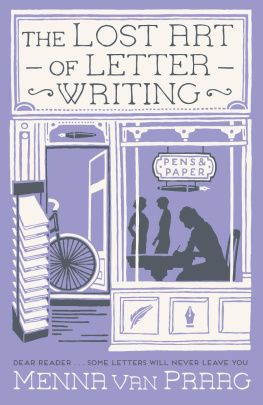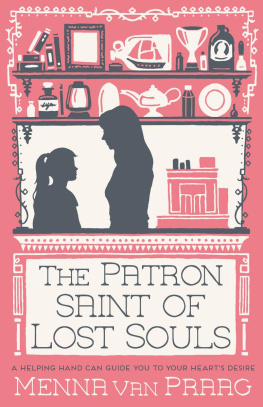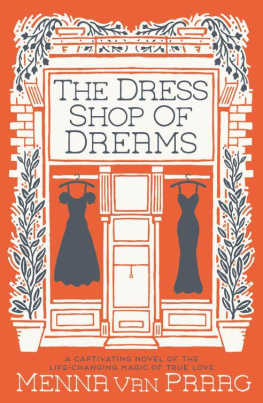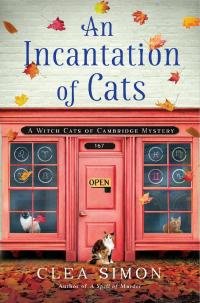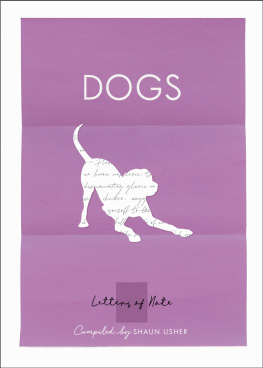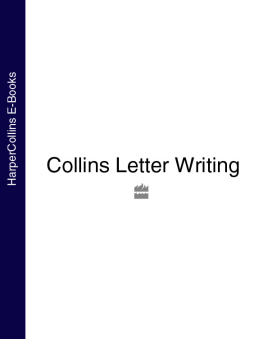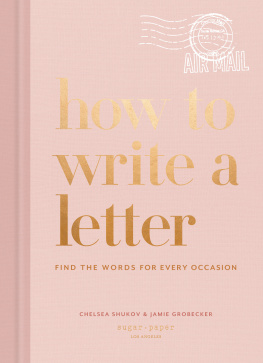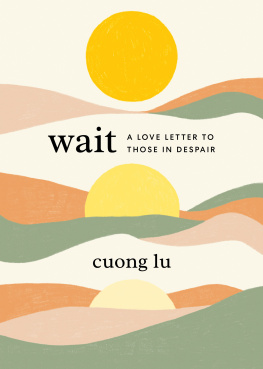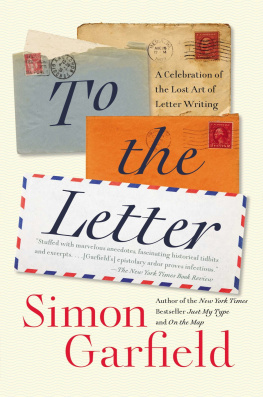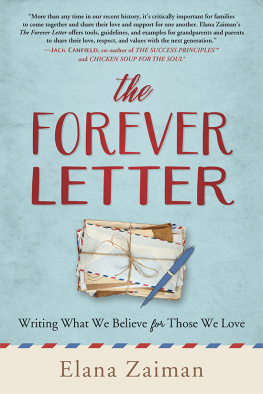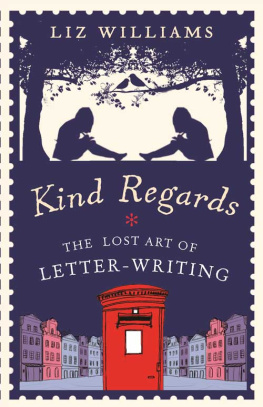The shop is tucked down a little side street, missed by most people, except those few seeking it out or accidentally stumbling upon it on their way to somewhere else entirely. The shop has a little green door, requiring customers to stoop upon entering, and tiny windows so cluttered that its impossible to peer through and see whats going on inside. Which is exactly how Clara wants it to be. She doesnt desire great wealth or prestige; she doesnt dream of attracting crowds of students and tourists passing through Cambridge, as other shop owners do. No, Clara wants those who have wandered away from the crowds, those who are feeling distracted and disconnected, those with bruised hearts, those who dont know how to undo the past and soothe their pain, those who doubt its even possible.
Until, that is, they wander along the tiny street and come upon the tiny shop. In one of its tiny windows is tucked a tiny note, written in tiny, but elegant, handwriting, inviting them to venture inside and:
Learn the lost art of letter writing
Most cant remember when they last sat down to press the nib of a pen to paper, when they last inscribed an envelope, found a stamp and dropped a letter into a postbox, imagining the person whod open it, grateful for the gift of thought and time sent from afar. And yet, even if theyve never written so much as a postcard before, still theyll step inside seized by a sudden, silent urge they cant understand and gasp.
The walls of the little shop are lined with letters, hundreds and hundreds of letters, in every colour of ink and paper and every style of handwriting. Dark oak cabinets contain writing papers in a thousand different designs: papers lined with silver leaf, embedded with roses and violets, papers studded with glittering foil stars, or painted with watercolour sunflowers each unique and furnished with matching envelopes. Shelves sit above the cabinets, weighed down with a rainbow of notebooks: bound in leather, swathed in silk, embroidered on linen or cotton, some made of paper stitched with flower petals but none the same as any other.
Only one corner of the little stationery shop is clear of any papers, pens or other writing paraphernalia. In this corner stands a delicate ornate Victorian writing desk made of mahogany and inlaid with mother-of-pearl, containing a dozen drawers one of them curiously locked and impossible to open and accompanied by a chair cushioned with dark-green velvet.
It is here that Claras particular magic takes place.
Upon the lettered walls hang half a dozen glass cabinets lined in crimson velvet, each just large enough to contain a single pen. Clara has held each of these pens, except one. Her grandfather made them all, buying them back at great expense years after hed sold them. One was used by John Lennon to compose Imagine, another by Daphne du Maurier to write Rebecca, another by Quentin Blake to illustrate Matilda
The only pen Clara hasnt touched is the one her grandfather made especially for her. The nib is gold, the inlay platinum, the barrel plated in silver, the cap topped with a small, single pink diamond. It was a gift on her thirteenth birthday and, with it, Claras grandfather attached a promise that one day when she was ready shed use it to write her own great novel. Hed seen it in her spirit, he whispered, the day she was born he had seen that literature was her destiny.
So far, however, Clara has never been able to write anything longer than a letter. Shes planned plenty of books and begun (with the assistance of lesser pens) a great many of them. Shes written millions of words, constructed thousands of sentences, even completed a paragraph or two, but hasnt yet managed to finish a first chapter. Every day Clara tries in vain to realise her grandfathers prophecy but lately, twenty years after he gave her the pen, shes starting to wonder if he didnt make a mistake.
Clara is sitting behind the counter (carved by the same carpenter who created the writing desk, in dark mahogany and mother-of-pearl and topped with an antique black-and-gold cash register) when her next lost soul walks into the shop. For a moment the woman seems confused, as if shes trying to remember why shes standing in the doorway of a stationery shop at all. Then she glances up and catches Claras eye.
Welcome to Letters, Clara says with a smile, grateful for the excuse to put down her unresponsive pen. She stands, walks around the counter, and stops at the cabinet on the other side of the room. Then she turns back to the woman. Clara waits for a moment, then speaks into the silence.
So, she says gently, to whom are you writing?
Im sorry? The woman seems confused again.
Well, Clara says, youve come here to write a letter
The woman frowns. I have?
Clara smiles again. Just give me a moment.
She glances at the cabinet again, her eyes slowly scanning each unlabelled drawer in turn. Then she stops, bends and opens a drawer close to the floor. Clara picks carefully through the papers, until she selects one and holds it out towards her new customer on her open palm.
If I gave you this paper, to write something you needed to say to someone you havent yet said it to, Clara says, then who might that someone be?
The woman reaches out to take the paper, holding it as if it were made of gold, which, indeed, it is: a sheet of cream linen flecked with tiny slices of gold leaf.
My sister, she says, so softly that Clara almost cant hear. Id write a letter to my sister.
Claras smile deepens. Perfect. Crossing the room, she ducks behind the counter again, pulling open unseen drawers and closing them again. Ill find you the perfect pen, so you can sit down and write.
Oh, no. The young woman shakes her head. I cant.
Clara looks up, her fingers curled around a long, thin, silver pen.
Why ever not?
The woman stares at her feet. Her voice, when at last she speaks, is as soft as falling leaves. Because shes dead.
Clara nods, as if shed expected exactly that answer which, indeed, she had.
Im sorry to hear it, she says. But I wouldnt let a little thing like death stop you. And dont worry, I have a special postbox for letters like that.
You do?
Oh, yes, Clara says. Of all the letters written in this shop, perhaps half of them are written to people who wont ever read them. At least, not in a way that we might understand.
Really?
Take this, Clara holds out the silver pen. You dont need to know what to write. The desk will help you with that. Almost as soon as you sit the words will start to come, I promise.
Tears fill the womans eyes. She steps forward and takes the pen, tentatively, between her thumb and forefinger. Thank you. She presses the paper to her chest. I wantI never had the chance to say
Clara nods, taking a step back to allow the woman to walk to the writing desk. She has read hundreds, possibly thousands, of letters to ghosts in the last decade of owning the stationery shop. Each letter has touched her heart, and each writer has captured her curiosity. And yet, there is something about this woman that particularly intrigues Clara. She wants to sit and drink cups of tea and listen to her life and learn why her pretty blue eyes seem so very sad. But, of course, she cant.
Sit, she says instead, as the woman hovers by the desk. Take as long as you want. No one will come into the shop until you are done.
The woman does so then, placing her paper carefully on the square of green felt, smoothing it over with her palm. Thank you, she whispers, just loud enough to be heard, then curls her body over the desk, takes a deep breath and presses her nose to the paper.

